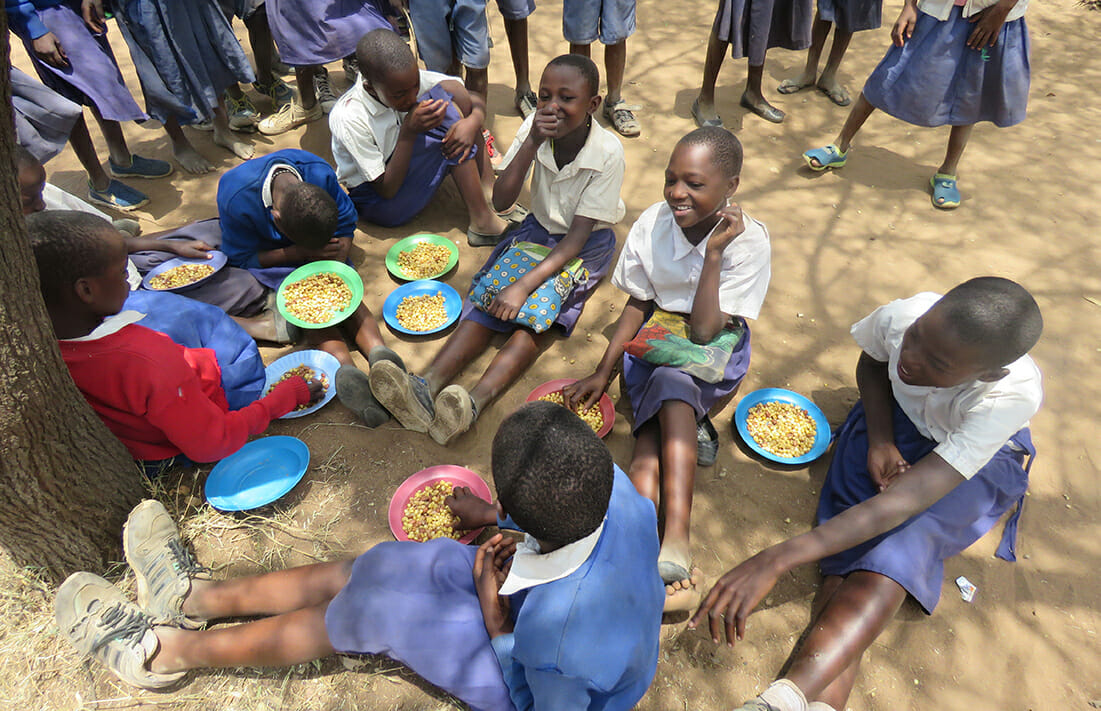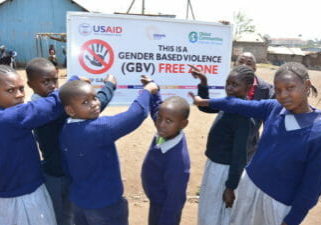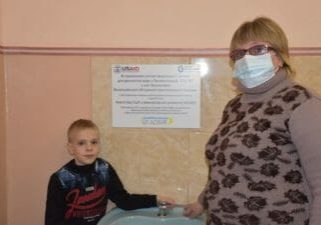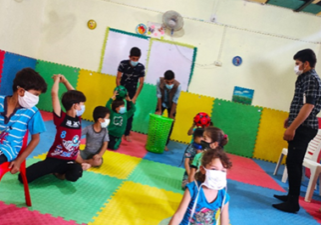News > Blog
It Takes a Village: Community Support Vital to School Feeding in Tanzania
Published 03/01/2019 by globalcommunities

What’s in a name? When it comes to Chakula Chetu, the answer is everything.
The program, which means “Our Food” in Swahili, takes an innovative and integrated approach to school feeding by ensuring both “what” and “who” is at the table emphasizes local food and local ownership.
Funded by the U.S. Department of Agriculture and implemented by Project Concern International (PCI), Chakula Chetu is currently in its second year of operation in the Butiama District of Tanzania’s Mara Region.
As part of the program, PCI provides daily school meals to more than 14,000 students in 16 primary schools using locally-purchased food. Chakula Chetu also builds the capacity of local stakeholders to eventually lead and manage their own school feeding programs. This collaborative network includes local government officials, market actors, school administrators, farmers, parents and other invested community members.
To enable a transition from external support to community-owned and sustained programming, Chakula Chetu focuses on helping schools and farmers increase their agricultural production and links to local food markets.

Photo by Amy Ostrander/PCI
Cooks prepare lunch for students at a primary school in the Butiama District of Tanzania using food provided through the Chakula Chetu program.
For example, prior to Chakula Chetu, only two of the 16 participating schools had functioning school gardens. Now, all 16 schools have established gardens that produced more than 370 kilograms (kg) of diverse and nutritious vegetables between April and September 2018. Parents and local farmer groups also contributed 15.5 metric tons of maize, 1.9 metric tons of beans, 700 kg of sorghum, 281 kg of salt and 68 kg of oil to provide commodities. Chakula Chetu-purchased food is used for school meals three days a week, while community-contributed food is used for meals two days per week.
“The Chakula Chetu program has improved schools in many areas. In my school particularly, student attendance has improved to 85% this year from the previous 65% over the past two years,” said Charwi John, the head teacher at Buturu Primary School. “Teachers have been trained on post-harvest handling. We have also been supplied with modern seeds. We have been able to harvest 500 kg of maize from our school farm, and we are now planting fruit trees in our garden to supplement student meals.”
Local farmers are also benefiting from Chakula Chetu by accessing inputs and financing that are critical for their farms and future growth. Through new linkages with the private sector, program-supported farmer groups have purchased more than 1,200 kg of improved seeds from private seed companies. Groups have also been able to access nearly $11,000 in loans due to effective interactions with the financial institutions.
“Chakula Chetu has helped us local farmers with education on best farming practices,” said Magdalena Wambura Bashiri, chairman of the Mkono kwa Mkono farmer group. “Before joining [the program], we used plant yields instead of seeds, and we were planting a mix of crops all at once on one farm. This led to very poor yields. Through regular training we receive from extension officers, this now has changed.”
In September 2018, PCI convened a stakeholder meeting to reflect on the program’s first year and talk through achievements, challenges, lessons learned and recommendations for Chakula Chetu moving forward. Two participants of note included Dr. Emmanuel Gibai, a representative from the President’s Office-Regional and Local Government, and Butiama District Commissioner Anna Rose Nyamubi.
Chakula Chetu is closely watched and documented by the central government as a pilot,” Gibai said. “The aim in the end is to implement the success of this innovative model to other districts country-wide.”
Nyamubi also expressed her enthusiasm for the program and encouraged each District Council department to develop plans to mirror Chakula Chetu in all schools within Butiama District.
In the program’s first year, Chakula Chetu distributed 87.45 metric tons of locally-purchased food, which served a total of 1,074,075 meals to 14,374 students, 172 teachers, 37 cooks and 20 guards in 16 targeted schools.
Story written by Amithay Kuhanda with support from Amina Kilagwa, Victor Mapile and Ambokile Mwangoka.






